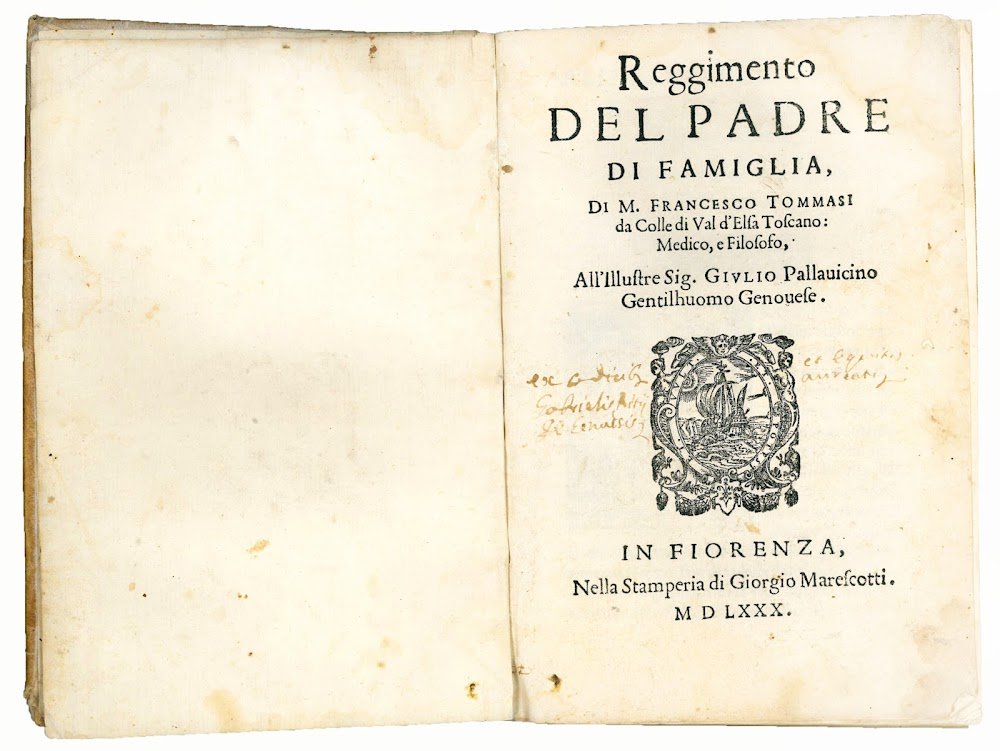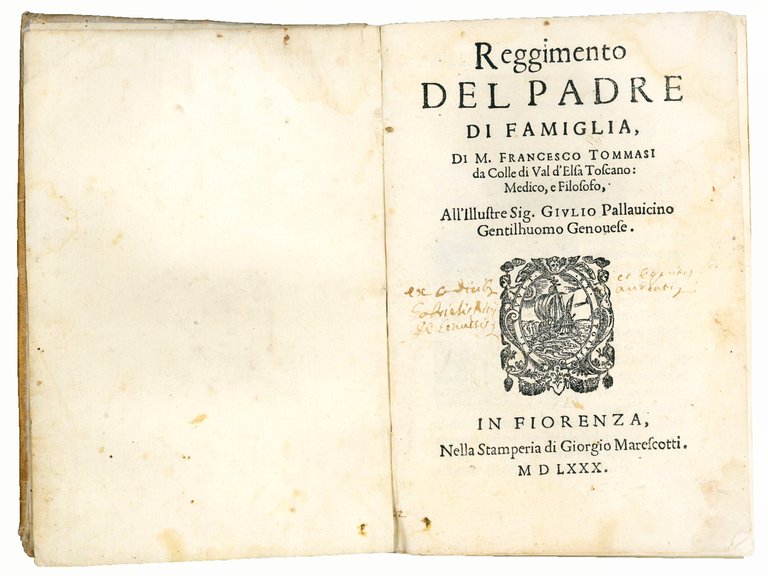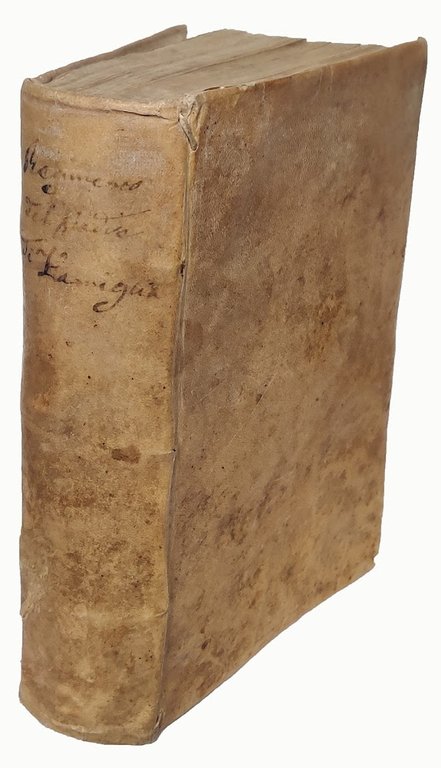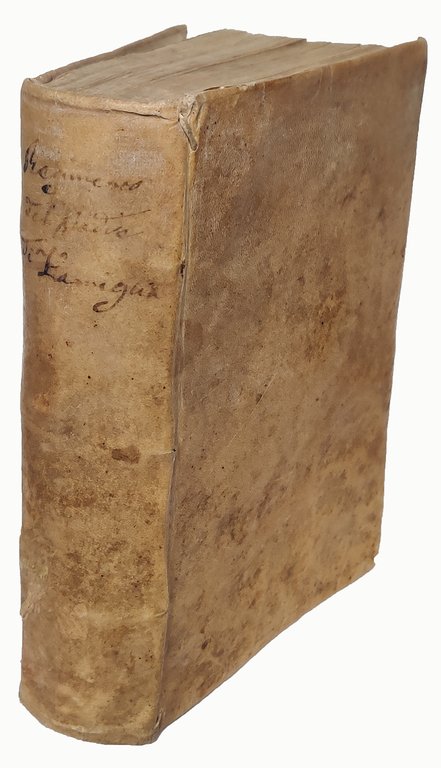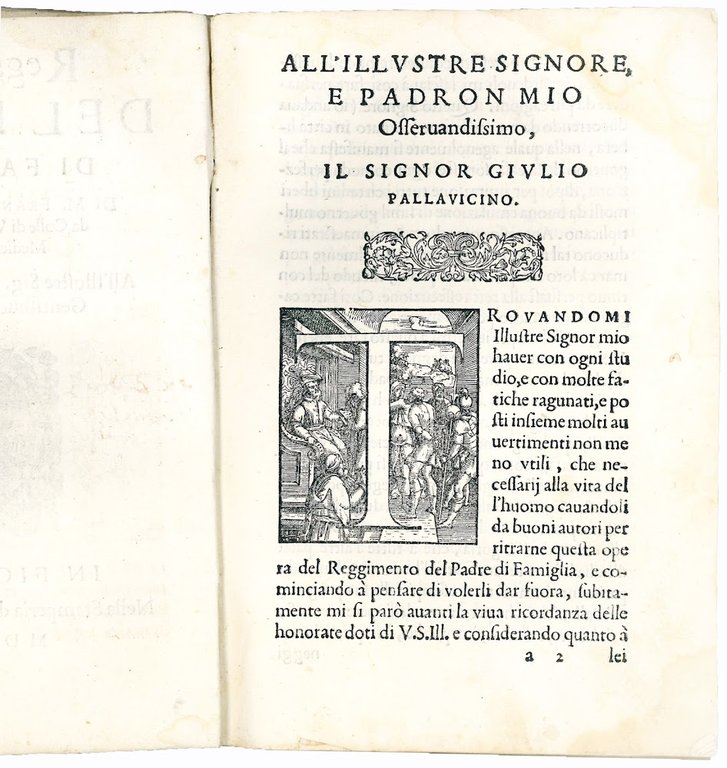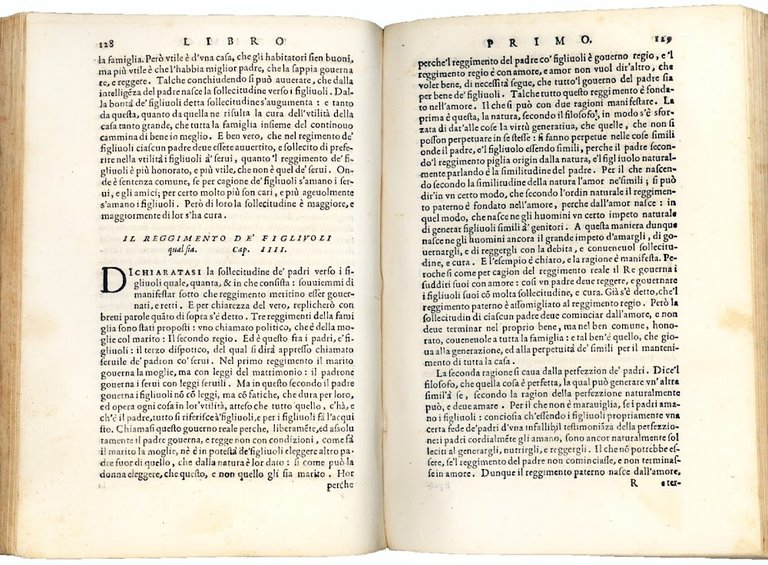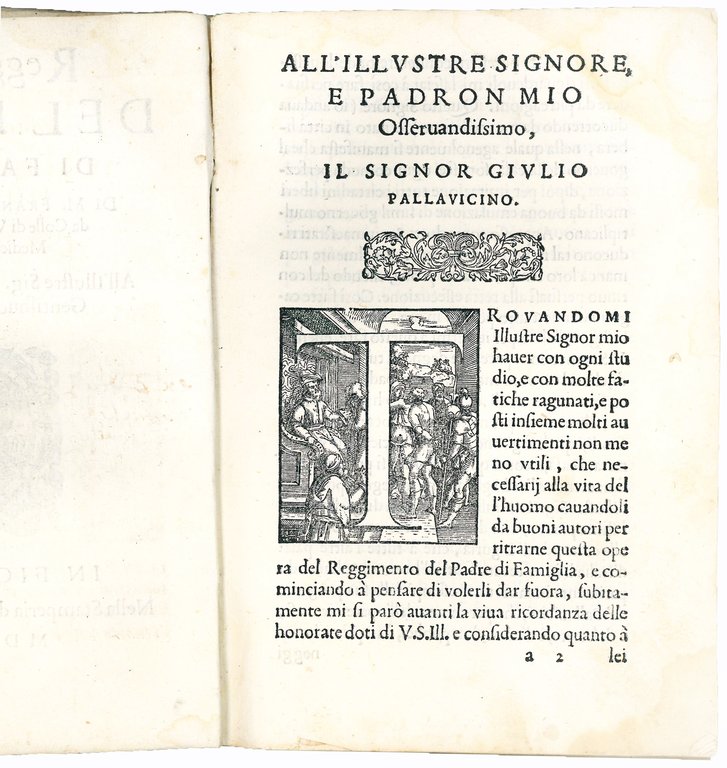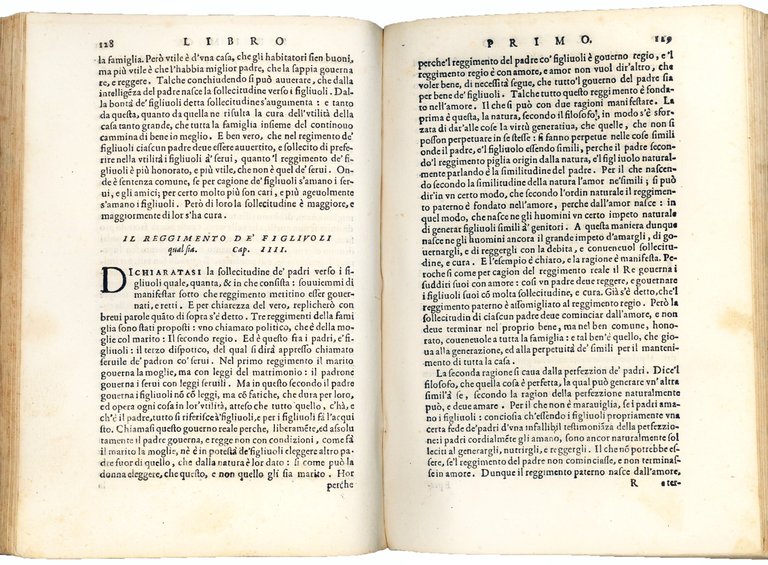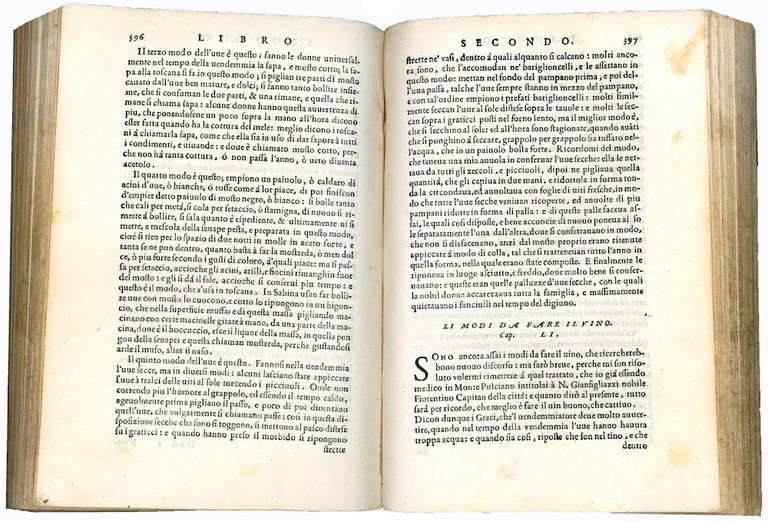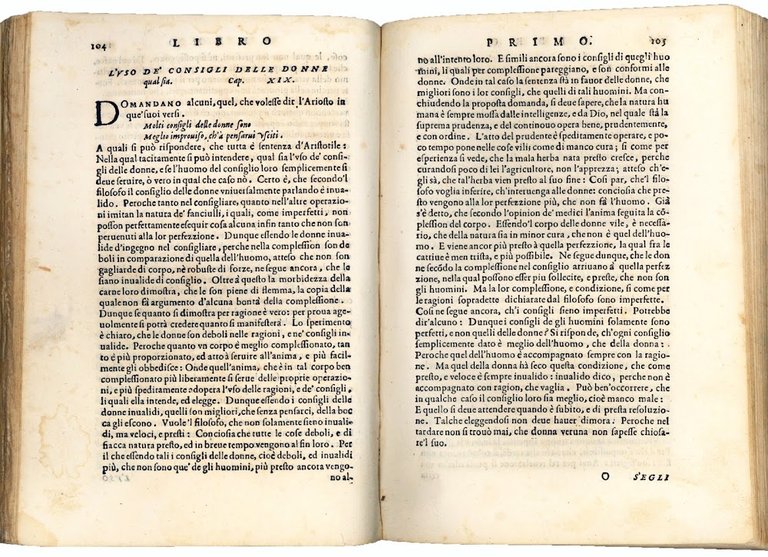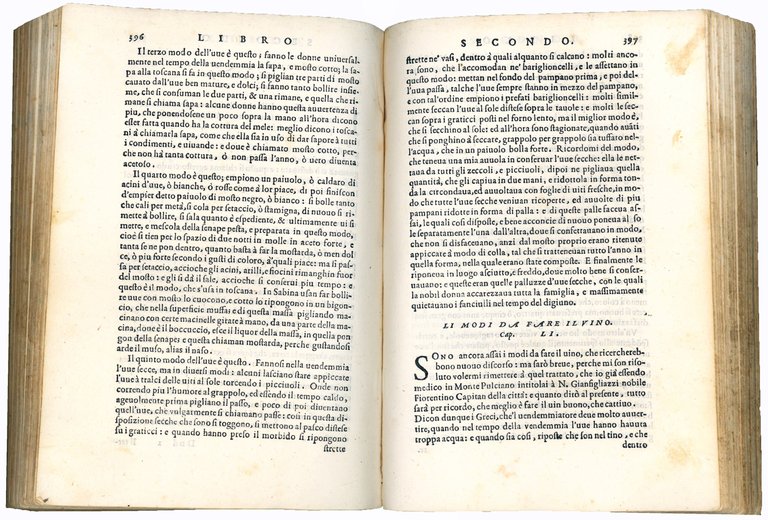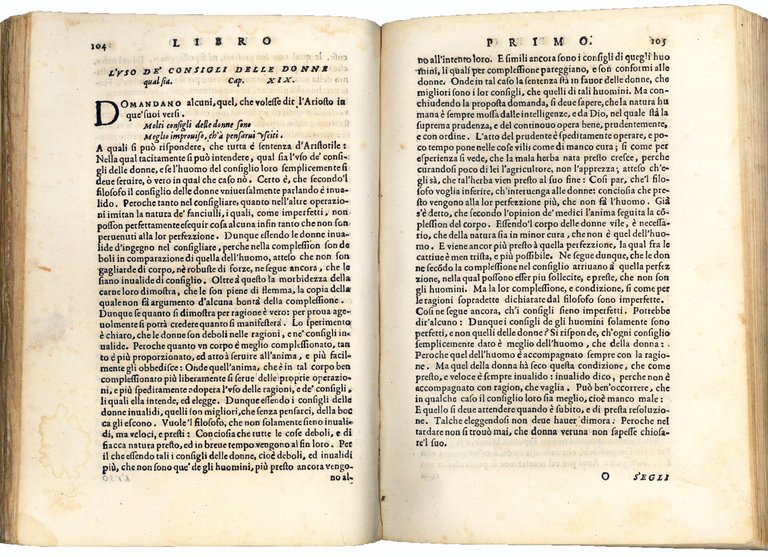Reggimento del padre di famiglia
Reggimento del padre di famiglia
Payment methods
- PayPal
- Credit card
- Bank transfer
- Pubblica amministrazione
- Carta del Docente
Details
- Year of publication
- 1580
- Place of printing
- Firenze
- Author
- TOMMASI, Francesco (c. 1515-1590)
- Publishers
- Giorgio Marescotti
- Keyword
- Quattro-Cinquecento
- State of preservation
- Good
- Languages
- Italian
- Binding
- Hardcover
- Condition
- Used
Description
THE FIRST TREATISE ON DOMESTIC ECONOMY AND AGRICOLTURE WRITTEN BY A TUSCAN AUTHOR
4to (cm 203x135). [80], 561, [3] pp. Collation: a-k4 A-Zzz4 Aaaa6. The last leaf is a blank. Printer's device on title page and on l. Aaaa5v. Colophon on l. Aaaa5v. Woodcut historiated initials. Slightly later stiff vellum, inked title on spine (minor restoration to spine, slightly soiled). On title page ownership entry “ex codicibus Gabrielis Ritii […] et equitis aureati”. Some occasional staining and foxing, a few tiny round wormholes to the last fifty leaves, all in all a good, genuine copy.
Rare first edition, dedicated to Giulio Pallavicini, of this comprehensive treatise on domestic economy, education of children and agriculture: the first by a Tuscan author.
In the preface, Tommasi gives a brief history of the literature on household economy, lamenting the scarcity of texts devoted to the subject: Besides Aristotle, Xenophon and St Thomas, he surprisingly quotes Leon Battista Alberti's then unpublished treatise Della Famiglia (cf. D. Frigo, Il padre di famiglia. Governo della casa e governo civile nella tradizione dell' “economica” tra Cinque e Seicento, Rome, 1985, p. 17; see also pp. 40-41 and 180-181)
The first part of the work deals mainly with family management: marriage, role of women, choice of servants, household government, etc. Christian education is achieved, according to the author who follows the precepts of the Council of Trent, mainly through love for children. Religious instruction, imparted by the father following the different stages of the child's growth (with more authority in the childhood years and then moving to greater depth toward adolescence), must be accompanied by moral instruction, for which the father figure provides the example, and by intellectual instruction, to which, according to Tommasi, all children are entitled, whether rich or poor (cf. G. Müller, Bildung und Erziehung im Humanismus der italienischen Renaissance, Wiesbaden, 1969, pp. 89-91).
The second part is a complete treatise on agriculture and farming. It discusses the cultivation of vegetables, animal husbandry, tree care (including vines, olive and palm trees), beekeeping, as well as the preparation of numerous products such as cheese, olive oil, vinegar, dried figs, wine, etc.
The author, a native of Colle Val d'Elsa in Tuscany, studied medicine in Naples, where he began practicing his profession. He was later in Montepulciano, Acquapendente, Rieti, Cortona and Rome at the hospital of Santo Spirito. He authored several medical treatises, including one on plague, and a poem in praise of the women of his hometown (cf. M. Berengo, Un agronomo toscano del Cinquecento: Francesco Tommasi da Colle Val d'Elsa, in: “Studi di storia medievale e moderna per Ernesto Sestan”, Florence, 1980, II, pp. 495-518).
BMSTC Italian, p. 675; Edit 16, CNCE28918; Gamba, 1700; G. Guarducci, Annali dei Marescotti tipografi editori di Firenze (1563-1613), Florence, 2001, no. 135, pp. 63-64; A. Erdmann, My gracious silence, Luzern, 1999, p. 195.
